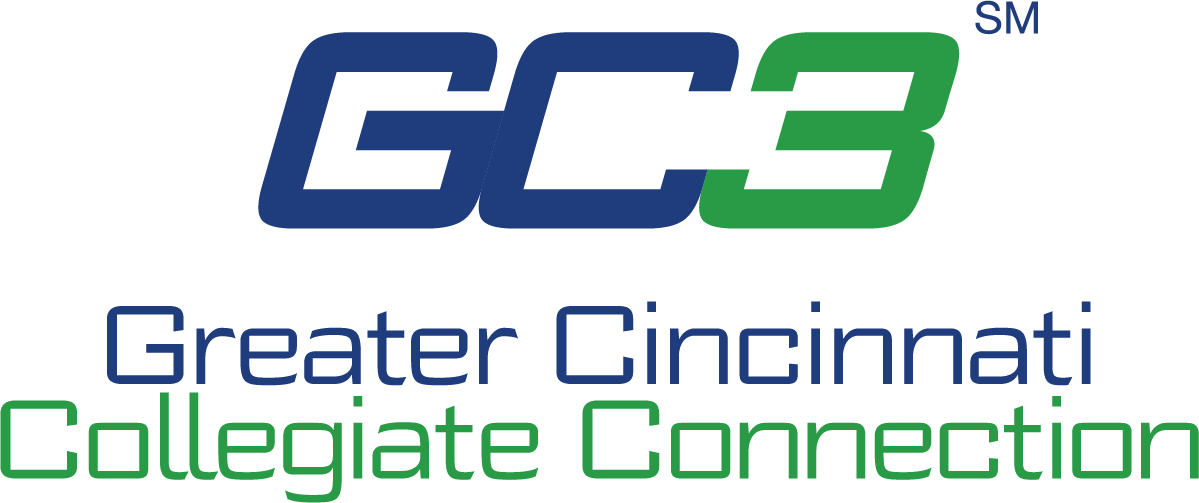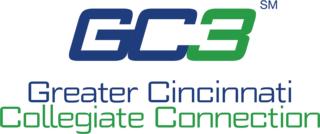Knowing the Words
It sometimes seems as though there is a whole new language when you start looking at college. To help you understand the words that are used, a number of them have been defined here.
Advanced Placement (AP) - Credit for introductory college courses based on demonstrated knowledge of content; student eligible to take the advanced course.
Application – All students must complete an Application for Admission. Admission staff use the information to determine whether a student meets the criteria to be accepted to the college/university.
Application Fee – In most cases, college/universities charge a fee to apply to their institution. This fee indicates the student is serious about attending the institution and is not applying with no intent to accept a spot. Under some circumstances, the Application Fee may be waived.
ASSET/COMPASS - Tests for college-level English and math placement.
Cincinnati National College Fair - Fall event at the Convention Center featuring representatives from area and national colleges and universities. The Cincinnati National College Fair may be a virtual experience Fall 2021.
College Credit Plus (Ohio)/ Dual Credit (Kentucky) – a high school partners with a local college/university to offer college level courses taught at the high school. The syllabus is approved by the college/university and the student receives both high school and college credit for completing the course. Check with your colleges/universities to insure they accept dual credit and the criteria (C or above). May be more expensive than AP, however easier to earn.
College Entrance Examinations - Standardized tests needed to apply to many college programs; often given at test centers on specific test dates; often requires preregistration; examples include the following:
- ACT (American College Test) - Test of English, mathematics, reading, and science reasoning
- PSAT/NMSQT (Preliminary Scholastic Assessment Test/ National Merit Scholarship Qualifying Test) - Practice test for the SAT test
- SAT (Scholastic Assessment Test) - Test of verbal and mathematical abilities
- College Level Examination Program (CLEP) - Credit for introductory college courses through exams
Common Application – A platform allowing a student to essentially apply to several institutions by completing a single application. Once you complete the application, you can select the participating school to send the application to.
Cost of Attendance – All colleges/universities are to publicize their estimated “cost of attendance” which is the cost beyond tuition. The Cost of Attendance includes the cost of tuition, fees, housing and is broken down into in-state and out of state.
Course Delivery Options:
- In-person – the instructor and the student are in the same room.
- Synchronous - Professors and students are still “together” at the same time in a virtual environment (Zoom/Google/Teams). The delivery mode will vary by college/university.
- Asynchronous - Students will be able to work at their own pace by viewing recorded lectures or individual readings. Very little interaction with the instructor.
- Hybrid - Combination of in-person and online instruction.
- Hybrid- Flex - Combination of in-person and online where students can choose the mode, they want to learn in.
DACA (Deferred Action for Childhood Arrival) – Students applying under the DACA Program should be aware their application process may be different than the process for regular admission to the college/university. Prospective students should check with Admission and/or International Students Services staff to insure they are following the current process for Admission.
Dual Enrollment – Admitting students of superior ability into college courses and programs before they have completed the standard high school program.
Early Decision - Application process well in advance of the normal spring application dates in which a commitment is made by the student that, if admitted, the student will enroll at that institution.
Financial Aid - Grants, scholarships, work-study, and loans provided to help cover the cost of college.
Free Application for Federal Student Aid (FAFSA) - Application for federal student financial aid; often used to apply for state and college aid as well; processed free of charge; available from high school and college offices or online at www.fafsa.ed.gov each January 1 for the upcoming year.
Grade Point Average - Academic performance indicator.
Grants - Need-based financial aid; not repaid.
Job Shadowing - Spending time with someone at their worksite to see what their job involves; used to help in career decision making.
Loan - Financial aid that has to be repaid, usually with interest; repayment often begins after college.
Open Admission - All students who complete the application and have earned a high school diploma or its equivalent are admitted to the degree programs
Pass/Fail – A grading option typically used in colleges and universities in which a passing grade is awarded for C level work and above and a Failing grade is awarded to below C level work. Considering the COVID-19 pandemic, to assist students in adjusting to on-line courses, many colleges/universities switched to a pass/fail grading system for many courses.
PLAN - Tenth grade assessment program from ACT to help students improve college planning and preparation; contains academic tests, interest inventory, and study skills assessment.
Post-Secondary Enrollment/Early Admission/Dual Enrollment - Admitting students of superior ability into college courses and programs before they have completed the standard high school program.
Pronouns - Gender pronouns are wording an individual would like others to use when talking to or about them. The most used pronouns are “he, him, his” and “she, her, hers.” Transgender or gender nonconforming people may choose to use pronouns which do not conform to binary male/female gender categorizations, such as “they, them, theirs.”
Residency – The state a student lives in will impact their tuition rate at public institutions. There are certain requirements for a student to meet residency requirements.
Rolling Admission - Applications are reviewed and decisions made throughout the year.
Scholarship - Merit or need-based financial aid; not repaid.
Test Optional – During the COVID-19 pandemic, many colleges/universities are not requiring students to submit an ACT/SAT score for admission. They may be admitted to the college, however there may be program or scholarships test score requirements.
Transcript - Official record of high school or college courses and grades; generally required as part of the college application.
Weighted Grades – Many high schools offer Honors level courses for which the grades in those courses receive extra “weight” in the students’ gpa.
Work Based Learning – Internships, cop-op, and other forms of Work Based Learning are sometimes required for students to graduate. Work experience can also serve as a bridge between college and employment upon graduation. This is not considered part of a financial aid package, but some do have a stipend or other payment involved.
Work-Study - Student employment program offered as part of a financial aid package.

